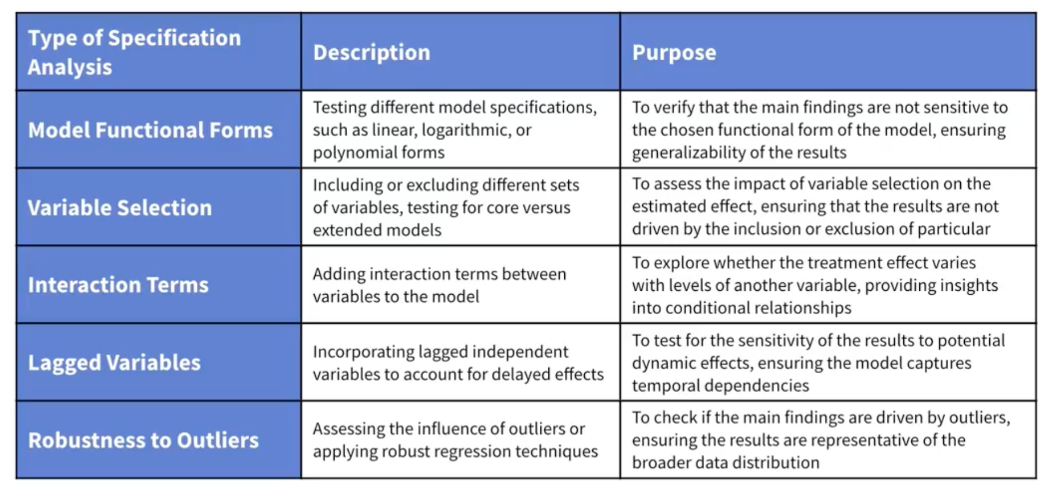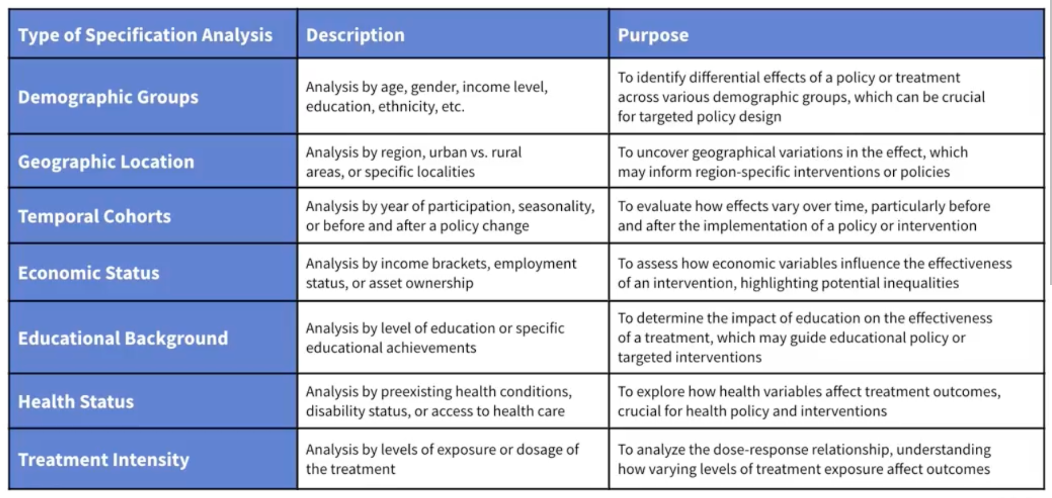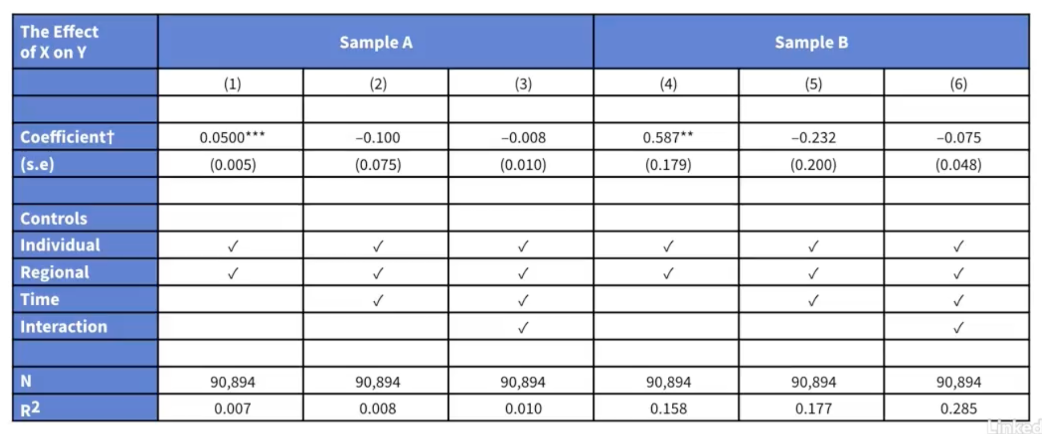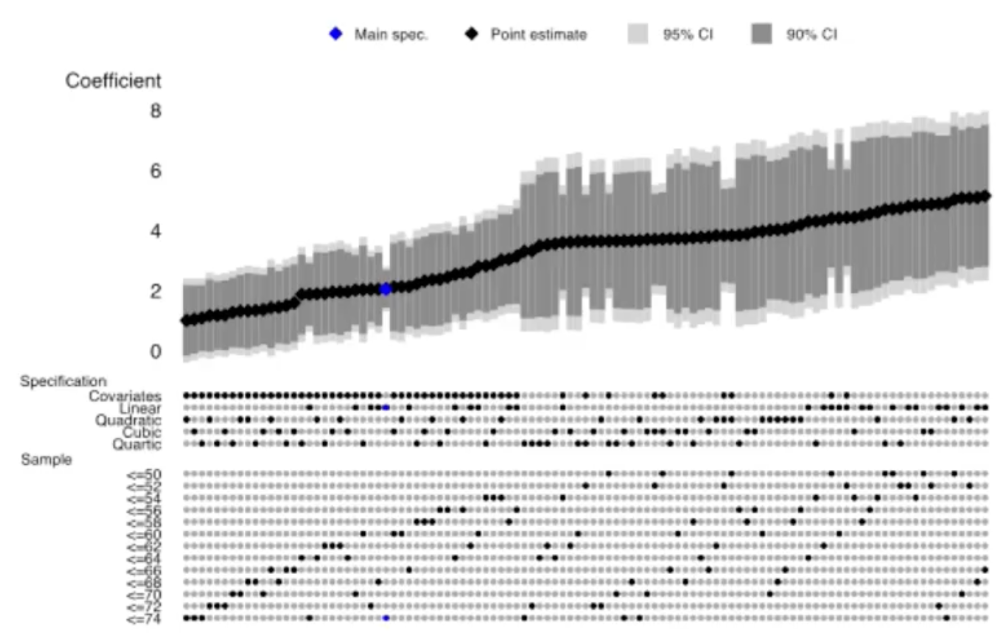Follow-up after getting causal estimates
Notes for Chapter 5 of Causal Inference with Survey Data on LinkedIn Learning, given by Franz Buscha. I’m using this series of posts to take some notes.
How to evaluate causal robustness
- Once you have your first causal estimate, you can’t stop.
- Others may not believe you.
Robust analysis
- What is the resilience of your causal estimate? Ensure it’s not an artifact of your analysis.
- Need to show extra analysis to validate.
Specification robustness
Examine the stability of model estimates when changing model specifications

Data robustness
Examine the consistency of estimates across different datasets or subsamples

Method robustness
- Examine whether it holds across a range of analytical methods
- But generally not as common, but might be able to do regression and propensity score matching
How to present robustness analysis Tables are common.

Another advanced visualization example

Summary
Conclusion
- Other forms of robustness analysis exist
- Specification, data, methods are the primary forms
- Few people believe a single number
- Always provide a range of results
How to present causal statistics
-
How do you get this information across?
- Clarity and simplicity
- Clear research statement
- Use simple language
- Avoid complex terminology and jargon
- Set context
- Present prior work (what people have done and what are the gaps), data (how does data look), methods (why the methodology, what are you concerned about)
- Be mindful of clear presentation in tables or visualization (like with coefficient plots) to reduce complexity.
- Interpret results carefully, avoid overstating, refer back to prior work and contextualize findings within larger set of results.
- Be transparent about assumptions, limitations, and replicability; share code, data and methods for replication
Summary
- It takes a long time to get to the final stage.
- Your job is not to show off, but to communicate important insights and information.
- Summarize findings in a credible, convincing, and enjoyable way.
%load_ext watermark
%watermark -n -u -v -iv -w
The watermark extension is already loaded. To reload it, use:
%reload_ext watermark
Last updated: Tue May 28 2024
Python implementation: CPython
Python version : 3.12.3
IPython version : 8.24.0
Watermark: 2.4.3